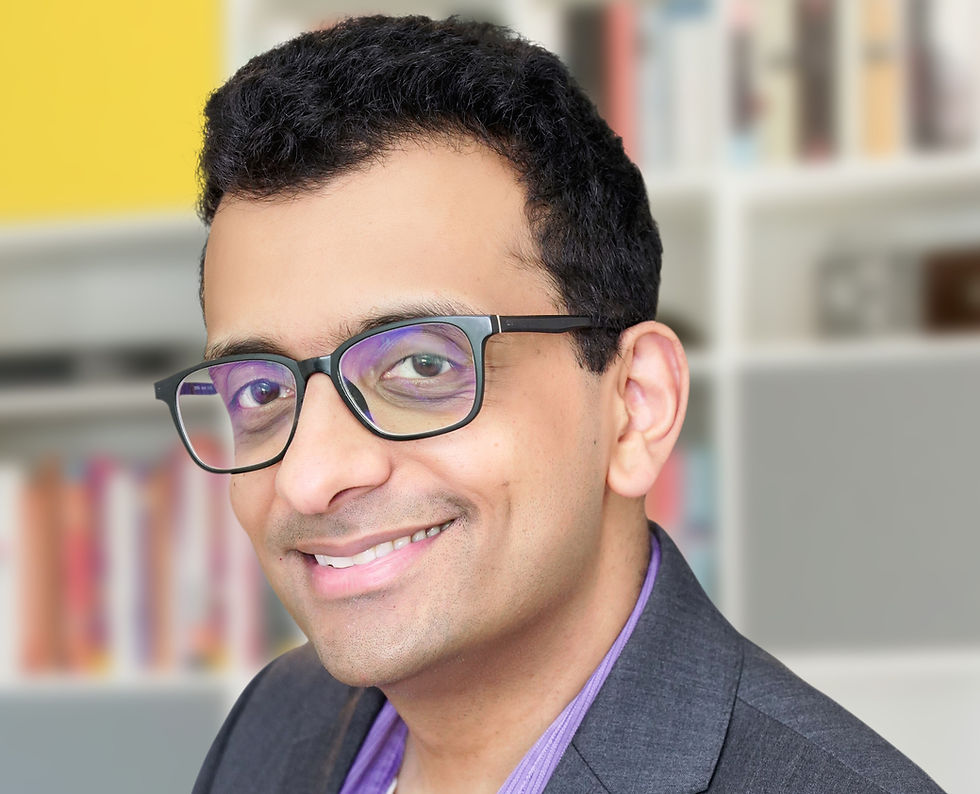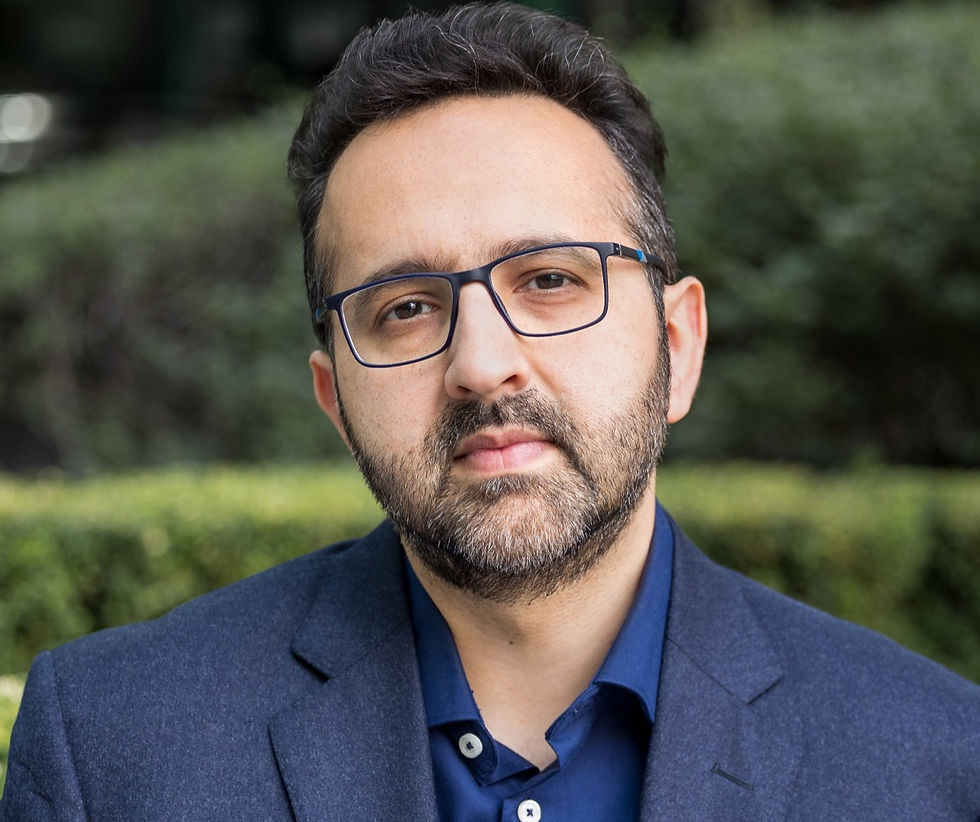An inside look: The writing process of debut novelist Aamir Hussain
- Sheelagh Caygill

- Sep 9, 2025
- 4 min read
Aamir Hussain was born into a family

of strong women in Pakistan, grew up in Saudi Arabia, and moved to Canada when he was fifteen years old. He works in the tech sector in Toronto. Under the Full and Crescent Moon is his debut novel. He lives in Milton, Ontario. In the writing process of debut novelist Aamir Hussain, Aamir shares how he's a disciplined writer due to his schedule, his approach to plotting, and his take on the dangers of AI, both to writers and the environment.
The writing process of debut novelist Aamir Hussain
OCW: What life experiences have shaped your writing style?
AH: My life is blessedly busy, which means I have very little time for writing. What that means is that my writing style has become, by necessity, rapid bursts of words churned out in the short amounts of time I am able to set aside. The healthy version of this is when I wake up early in the morning to write on a schedule, the unhealthy one comes late at night when I feel like I need to catch up for lost time.
From plotting to publishing: An unconventional path to success
OCW: Are you a plotter or a pantser?
AH: Thus far I am a plotter. I find that when I am engaged with an idea that my mind keeps thinking about it constantly and spitting out ideas about how to best tackle it. All of these go into a notebook as pivotal scenes, sentence snippets, timelines of events, world concepts, and even full paragraphs from the middle of the story as they come to me.

Organizing all of these into an outline with fairly well defined start and end scenes gives me the structure I need to dive in and start writing.
OCW: If you’ve been published, how did you find your first publisher?
AH: After I finished my debut novel I honestly didn't know what to do with it. It took a fair bit of online research and reading to understand the most traditional route to being published would be to find an agent. So I started writing query letters and started getting rejects.
As I was mentally preparing myself to shift my focus from 'getting an agent' to the much healthier 'getting a hundred rejects', my wife noticed a billboard advertising the FOLD (Festival of Literary Diversity) in Brampton. I signed up for it and met the publisher of Dundurn Press at the time Kwame Fraser in an online round table. He liked my pitch enough to ask me to send the manuscript to his assistant Julia Kim and she championed it. I've been very fortunate in the people I've met in the industry.
Generative AI: A threat to the creative process?
OCW: Do you see generative AI as a threat or benefit to writers?
AH: Even though my day job is in the tech industry, I find generative AI to be a threat to the world, and not just writers. Putting aside the immense environmental costs of generative AI (with very little benefit as far as I'm concerned), what worries me for writers is the mind numbing effect that relying on generative AI seems to have.
Asking AI to summarize a novel robs a person of the act of absorbing it, thinking over it, and putting it in their own words. Asking AI to write off a prompt turns the 'writer' from someone engaged in a feat of immense creativity into someone who is, more often than not, a passive consumer of what the LLM spits out.
I ardently hope that the younger generation will avoid the temptation of turning to these shortcut technologies and instead hone their craft without using gen Ai as a crutch. I truly believe that anyone who takes this harder path will have an edge over those who do not.
Balanced approach: When to write, when to edit
OCW: Do you edit as you write, or write and edit later?
AH: When I first started working on my debut novel, I was editing as I wrote. I found though that I was compulsively going over my first five chapters over and over. The editing was actually serving as an excuse to not forge ahead with the much more terrifying act of actually continuing and completing the story. So I switched to the opposite tack of writing and writing and not looking back.
In fact my first draft ended up with a lot of notes to self about what was supposed to happen anytime I got stuck on a scene or got writer's block. Actually getting to the conclusion in draft one gave me the energy to go back and tackle the tricky bits I had left for myself to write in draft two.
There was a lot more cleaning up needed in the later chapters as compared to the relatively polished first five, but the feeling of momentum I gained from not editing as I went turned out to be the better approach for me.



Comments